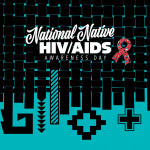As POZ went to press for this issue, the United States had lost 100,000 people to COVID-19, the disease caused by the novel coronavirus. While this number may be contested and likely underreported—because testing is spotty and unreliable, for instance—solid data show which populations are at higher risk for severe illness and death: people of color, older people, those with other health conditions and people with compromised immune systems. This means that COVID-19 often strikes at the heart of the HIV community, notably its elders and leaders. (About half of the people living with HIV in the United States are 50 or older; that figure is predicted to reach 70% within a decade.)
Everyone pictured on these pages died of complications from the coronavirus, but read these bios and you will discover diverse and inspiring advocates. Each person contributed immensely and uniquely to the HIV community, and their legacies will live on. In the past months, the work and the humanity of these heroes have been lovingly remembered via outpourings on social media. We agree with the many online commenters who wrote that for these outstanding leaders, R.I.P. stands for “Rest in Power.”
Deloris Dockrey, 60
Global Activist for Women With HIV
She worked at the New Jersey AIDS group Hyacinth Foundation for 15 years, but Deloris Dockrey’s activism spanned the globe. Originally from Jamaica and HIV positive since 1994, Dockrey held a master’s in public health and had a wealth of knowledge about Ryan White Program legislation. Active in the Positive Women’s Network, the Global Network of People Living with HIV/AIDS and other groups, Dockrey was a fierce champion of women living with the virus, her colleagues say.

Deloris DockreyFacebook/Deloris Dockrey
Garry Bowie, 59
HIV Nonprofit Leader
The executive director of West Hollywood HIV group Being Alive, Garry Bowie contracted HIV in 1983 at age 22. Before the advent of effective treatment in 1996, he and his mother would drive to Mexico to procure experimental meds and bring them back for people with HIV. Inspired by Magic Johnson’s 1991 disclosure, Bowie became an activist. He worked for many organizations—including as a director of the Long Beach AIDS Foundation—and he championed the leather community, notably as an archivist for the Satyrs Motorcycle Club. Jeff Wacha, his husband of 20 years, said Bowie was “overall healthy and strong—and [then the coronavirus] took him, and took him so quickly.”

Garry BowieFacebook/Jeff Wacha
Nita Pippins, 93
Mother to Many With AIDS
In 1987, Nita Pippins, then a retired nurse in Florida, moved to New York City to care for her only child, Nick, who had AIDS. She didn’t like the city and was ashamed of Nick’s homosexuality. But by the time he died three years later, at age 35, she had transformed into an AIDS advocate and a surrogate mother for many young men dying of the disease. Working at Miracle House, which offered visiting family and caregivers an inexpensive place to stay, Pippins comforted many parents forced to confront an adult child’s illness and sexual orientation all at once. She remained in Manhattan until her death on May 10, Mother’s Day.

Nita PippinsYouTube/CableUncovered/NY1
Ed Shaw, 77
Longtime Advocate for People Aging With HIV
HIV positive for slightly over 30 years, Ed Shaw was dedicated to helping others who had HIV. In 2018, for example, when he was 76, Shaw appeared in the public awareness video series Never Alone, which highlighted challenges long-term survivors face. In the mid-’90s, he helped organize the POZ Life Expos, serving as a liaison to disenfranchised communities. He was active in many HIV-related groups and events. POZ founder Sean Strub said Shaw “was a quiet leader who leaves a powerful legacy of love.”

Ed ShawHIV: The Long View Coalition
Terrence McNally, 81
Celebrated Playwright
An HIV-negative and openly gay man who lost two partners to the AIDS epidemic, Terrence McNally is perhaps best known for 1994’s Love! Valour! Compassion!, about gay friends during the AIDS epidemic (it was made into a 1997 film), and 1995’s Master Class, a portrait of opera diva Maria Callas. Each won the Tony Award for Best Play. Maybe less known is the fact that McNally was a founder of Broadway Cares/Equity Fights AIDS, which continues to raise funds for HIV today.

Terrence McNallyCC BY-SA 4.0/Al Pereira
Gita Ramjee, 64
HIV Scientist and Advocate for Women’s Health
A true global leader, Gita Ramjee grew up in Uganda and India before moving to the United Kingdom, where she earned a degree in chemistry and physiology. Ramjee later settled in Durban, South Africa, with her husband and completed a PhD in pediatrics. She was passionate about HIV prevention for women and girls in Africa and worked to expand access to treatment. She became ill after presenting at a symposium at the London School of Hygiene and Tropical Medicine.

Gita RamjeeSunderland University Comms
Lorena Borjas, 60
Transgender Latinx Activist
After immigrating from Mexico in 1981, Lorena Borjas helped organize one of the first transgender marches in New York City and tirelessly fought for LGBT and HIV causes in her Queens neighborhood. (For an inspiring look at her life, watch the short film The Story of Lorena Borjas on Queens Public Television and Vimeo.) A survivor of sex trafficking and abuse, she specialized in outreach to immigrant transgender sex workers. In recent years, she feared deportation, but in 2017, due to her long history of community work, New York Governor Andrew Cuomo pardoned her past convictions, including a prostitution charge. Last year, she became a U.S. citizen.

Lorena BorjasTransLatin@Coalition/Guillermina Hernandez







2 Comments
2 Comments